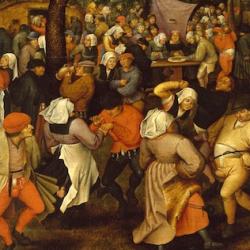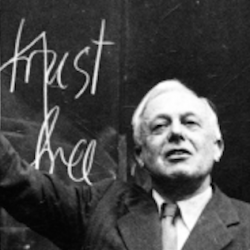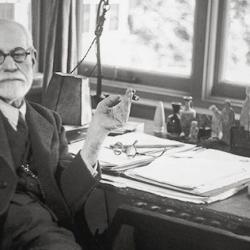Paganism, writes Eugen Rosenstock-Huessy (Christian Future), “is best understood . . . as primitive man’s response to the fear of death.” That means not only personal death but also the death of those groups to which he is bound—family, race, country. The problem is that “all finite forms must die,” and when pagans are “stuck in the narrow plot of earth to which his birth roots him, and his soul is therefore haunted by inexorable doom” (64).
Myths compensate for this dread of death: “A myth is a form of mental life which pretends to be deathless; its kernel is always a fixing of the mind on some transient thing which thereby is immortalized. Nothing on earth is good or forever. The myth pretends it to be” (64).
But the thing that myth eternalizes is still a limited thing, a particular tribe, place, people. By refusing death, myth perpetuates “pagan fragmentation of mankind” that encloses “every community . . . in a private time and space. Every myth, from Osiris in Egypt to Odin in Sweden, tried to establish an immediate relation between its predecessors and the universe in order to mark off their particular place or ethnic group from the rest” (64).
Christianity brings a universal history that begins with Adam and ends with a Last Judgment of all the living and the dead. This universal history combats pagan myth at ever critical point. Christianity doesn’t avoid death but incorporates it; for Christian faith, death is the way to life. Christians know that every finite thing dies—every group, every nation, every history epoch. What persists is not what remains changeless but what rises from the dead: “Against the deathless myths and hopeless cycles the price of a living future is to admit death in our lives and overcome it” (65).
Christianity thus can be the foundation for a universal humanity. The “supreme gift” of Christianity is that “it showed that the fear of death need not force man into the narrow circle of any given community. In place of pagan dividedness it created a universal pedigree for man that transcends all partial ends and beginnings, and measures history from the end of time” (65). This was already beginning in Israel, and “Jesus created man’s future by building on the work of Israel. That work had been to establish the unity of heaven and earth, brother and brother, father and son. Jesus completed this unified orientation of human history by opening up a new dimension: Creation of a new man by letting the pagan and the Jew survive themselves. That is why he was the perfect man, the first complete human being” who “overcame man’s dividedness by living once for all the specific law of the human kind, namely, that man can progress from fragmentariness to completeness only by surviving the death of his old Adam, his old allegiances, and beginning new ones” (66).










